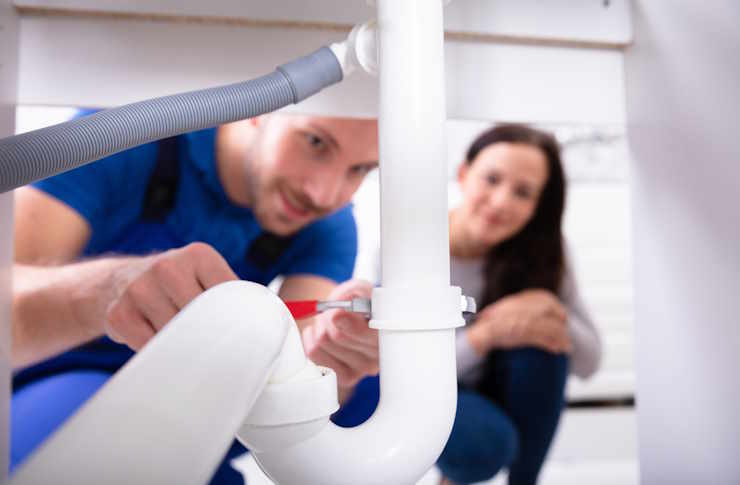Top Professional Garage Floor Coating Types, Costs, Benefits, and Installation Advice USA 2025
Choosing the right garage floor coating greatly increases concrete durability while improving safety and appearance. This article compares leading professional options in the U.S. for 2025—types, typical costs, benefits, and essential installation considerations to help homeowners decide.

Overview of Leading Professional Garage Floor Coating Types
In 2025, the garage floor coating market is primarily dominated by three professional-grade materials: epoxy, polyurethane, and polyurea/polyaspartic systems. Each brings distinct advantages tailored to particular needs and budgets.
-
Epoxy Coatings Epoxy remains a popular choice for its cost-effectiveness and strong chemical resistance. It bonds firmly with concrete, providing a tough barrier against oil stains and general wear. However, epoxy’s rigid nature can lead to cracking over time, especially when exposed to temperature changes or uneven concrete.
-
Polyurethane Coatings Highly regarded for excellent UV stability, polyurethane coatings resist yellowing and fading under extended sunlight exposure. They offer more flexibility than epoxy, along with strong abrasion and chemical resistance, making them suitable for garages subjected to sunlight or changing climates.
-
Polyurea/Polyaspartic Systems Known as the state-of-the-art in floor coatings, polyurea and polyaspartic systems cure very rapidly and provide outstanding flexibility, resistance to chemicals and abrasion, as well as UV stability. These coatings allow for same-day application and cure, enabling quick garage use. Their decorative vinyl chip options enhance visual appeal and mask surface imperfections effectively.
Typical Cost Estimates for Garage Floor Coatings in the U.S.
Costs for professional garage floor coatings vary widely depending on garage size, surface condition, chosen coating, and finish type. Below are the typical price ranges per square foot as of 2025:
- Epoxy coatings: Prices usually range between $4 and $10 per square foot. Basic epoxy applications for a standard one-car garage fit within a low to mid-price range, with premium finishes costing more.
- Polyurea/Polyaspartic coatings: These advanced coatings often cost $7 to $12 per square foot, reflecting their superior properties and faster application times.
- DIY Epoxy kits: Generally available at $1 to $3 per square foot but commonly lack the durability and professional-grade finish longevity.
Additional expenses may arise if concrete surface grinding, crack repairs, or moisture mitigation is necessary; these prep steps can add about $1 to $3 or more per square foot depending on the floor condition.
Disclaimer: Prices and availability can differ by region, dealer, and current market trends. Consumers should confirm costs with local experts.
Advantages of Professional Garage Floor Coatings
Beyond visual appeal, professional coatings provide multiple practical benefits:
- Defense Against Damage: They protect concrete from oil spills, chemical exposure, moisture ingress, and abrasive wear.
- Enhanced Safety: Many coatings incorporate slip-resistant additives to minimize fall risks, even on wet surfaces.
- Improved Lighting and Appearance: Reflective coatings boost garage brightness by diffusing light more effectively.
- Simplified Cleaning: Smooth coated floors repel dust and grime, easing maintenance.
- Extended Lifespan and Increased Value: Properly applied coatings can extend floor durability—epoxy lasting 10–20 years and polyurea/polyaspartic over 20 years—potentially raising home resale value.
Professional Garage Floor Coating Installation Guidelines
The durability and finish quality of garage floor coatings largely depend on meticulous installation:
- Comprehensive Surface Prep: This includes thorough cleaning, mechanical grinding or shot blasting, and repairing any cracks or defects.
- Moisture Testing and Control: Checking and mitigating concrete moisture levels before applying coatings prevents adhesion failures, particularly important for polyurea/polyaspartic types.
- Controlled Environmental Conditions: Maintaining optimal temperature and humidity during application improves curing and coating performance.
- Expert Professional Application: Certified technicians ensure correct techniques, curing times, and quality assurance for long-lasting attractive floors.
Installation Timing and Curing Comparisons
Polyurea/polyaspartic coatings are notable for their fast cure times, often ready for foot traffic within hours and vehicle access within 24 hours. This quick turnaround contrasts with epoxy coatings, which generally require longer curing periods spanning several days before full use is safe.
Selecting the Best Coating Based on Use and Budget
Choosing the most suitable garage floor coating requires evaluating durability, costs, and intended use:
- Epoxy works well for moderate-use garages and homeowners with budget constraints, offering solid protection and an expected professional lifespan of 10–20 years.
- Polyurea/Polyaspartic coatings are optimal for heavy-traffic or industrial-level use, offer longer durability (20+ years), and superior resistance to chemicals, UV light, and abrasion, though at a higher initial investment.
Maintenance Tips to Prolong Floor Performance
Maintaining your floor coating helps preserve its condition over time:
- Clean up spills and stains quickly
- Sweep frequently to remove debris and grit
- Employ pH-neutral cleaning solutions
- Avoid dragging heavy items that may chip or scratch
- Promptly repair any damage or worn areas
- Follow manufacturer recommendations for reapplication of top coats when necessary
Additional Factors Affecting Cost and Quality
- Garage Dimensions: Larger spaces gain some cost efficiency but require more material overall.
- Concrete Condition: Defects, leveling issues, and moisture concerns increase preparation time and costs.
- Finish Type: Basic solid colors cost less than decorative metallic or quartz finishes.
- Location and Season: Regional and seasonal variations may impact pricing, with off-season scheduling sometimes reducing expenses.
Safety and Aesthetic Customization Options
Slip-resistant additives enhance safety without compromising finish gloss or texture. Polyurea/polyaspartic coatings often include decorative vinyl chips, adding depth and masking flooring imperfections, allowing homeowners to personalize their garage’s look.
Professional Installation Compared to DIY Kits
Though DIY kits are affordable, they usually cannot match the flawless, durable finish achieved by professionals and often last only 1 to 3 years. Professional installation guarantees thorough surface prep, better adhesion, superior finishes, and warranties, delivering performance and aesthetics lasting 10–20 years or more.
Sources
- https://knoxvilleconcreteflooring.com/epoxy-garage-floor-cost-what-you-need-to-know-in-2025/
- https://level10coatings.com/polyurea-vs-epoxy-floor-coatings-costs-pros-cons-and-the-best-choice-for-2025/
Disclaimer: Prices and availability referenced in this article may vary by region, dealer, and current market promotions. Readers are encouraged to verify details with local professionals before making decisions.




